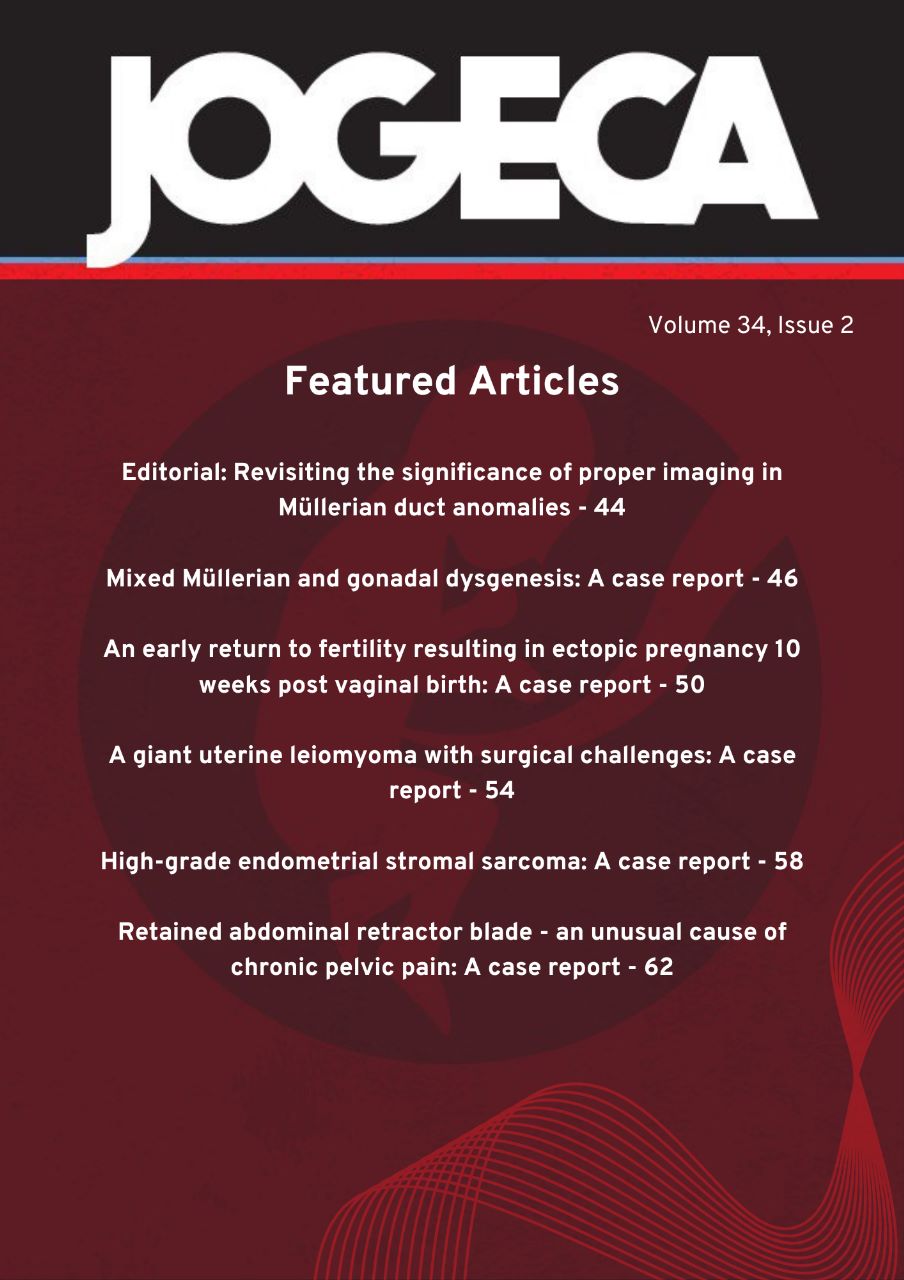Value of aspirin in assisted reproductive technology
DOI:
https://doi.org/10.59692/jogeca.v36i1.137Keywords:
“Infertility”, “Aspirin”, “Pregnancy outcomes”Abstract
Infertility affects at least 15% of couples worldwide, and its prevalence is higher in low- and middle-income countries (LMICs). Although expensive, especially in LMICs, the uptake of assisted reproductive technology (ART) services is on the rise. The cohort of patients who utilize these services tend to be older and prone to pregnancy-related complications, such as hypertension and early pregnancy loss. Aspirin is not only affordable and accessible but also widely used for its antithrombotic and anti-inflammatory effects, which may counteract implantation failure or miscarriage. Although this sounds logical, sufficient evidence has not been adduced. In addition, there is currently no consensus on the dosage of aspirin. It is important to consider the therapeutic advantages of aspirin in pregnancies conceived through ART to optimize pregnancy outcomes. There is a need for more research on the benefits that may be accrued using aspirin in ART and other high-risk pregnancies.
Downloads
Published
How to Cite
Issue
Section
Categories
License
Copyright (c) 2024 The Authors.

This work is licensed under a Creative Commons Attribution 4.0 International License.




